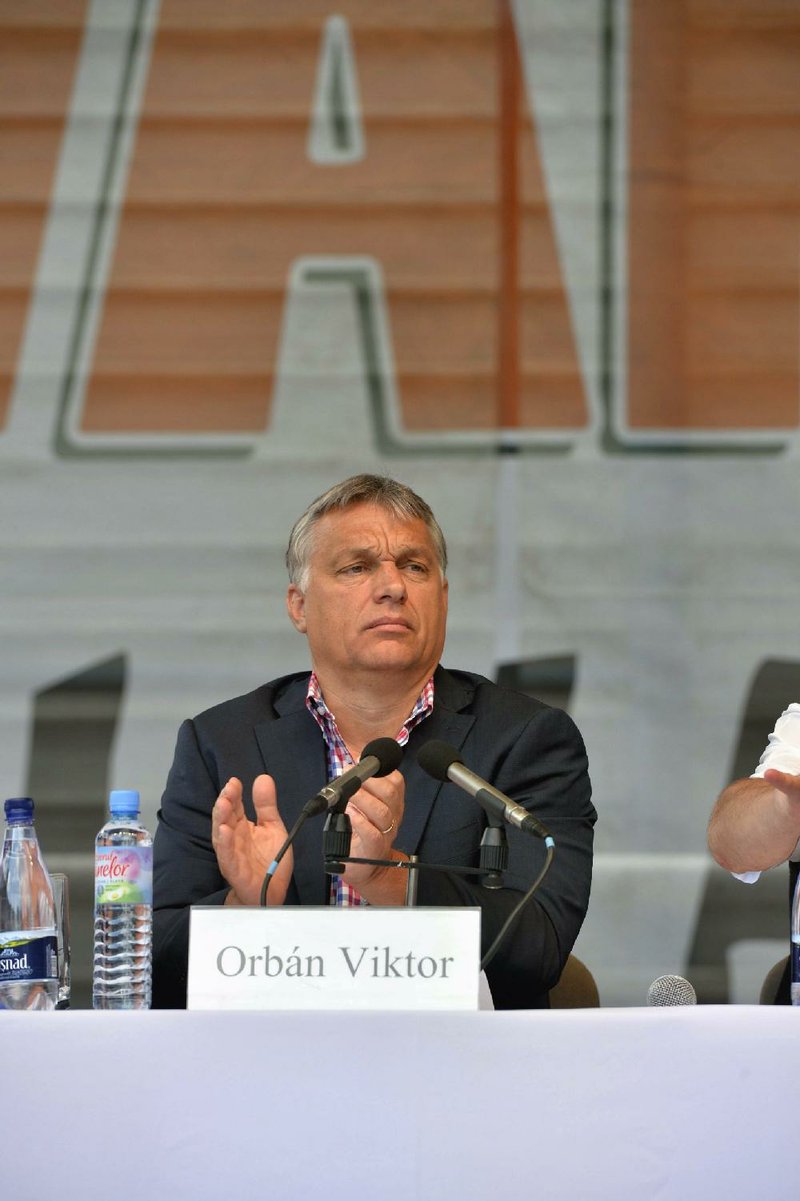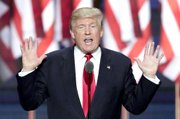BUDAPEST, Hungary -- A Donald Trump presidency in the U.S. would likely be the best outcome for Europe, Hungarian Prime Minister Viktor Orban said, going further than any leader in the European Union to back the Republican nominee.
Orban, a maverick leader who has built a barrier on Hungary's borders to keep migrants out, hailed Trump's ideas to fight terrorism. Europe is "living in fear" after attacks in Nice, France, and in Munich, and has lost its way trying to cope with its biggest migrant wave since World War II, Orban told an ethnic Hungarian audience in Baile Tusnad, Romania, on Saturday.
"I'm not a member of Donald Trump's campaign," said Orban, who has clashed with Democratic presidential candidate Hillary Clinton and her husband, former President Bill Clinton, over the state of democracy in the eastern European nation. "I'd never have thought that it would occur to me the idea that he would be the best choice for Europe and for Hungary."
Orban spoke after Trump roiled Europeans last week by saying that if he were president he might not defend NATO members from Russian military aggression if those countries don't spend 2 percent of their gross domestic product on defense.
One of the countries not making the required 2 percent spending is Hungary, an EU and North Atlantic Treaty Organization member that was a satellite of the Soviet Union for more than four decades until the fall of the Iron Curtain in 1989. Orban didn't address that issue Saturday.
Like Trump, Orban, a three-term premier going for his fourth general election victory in 2018, has relished his role as a plain-spoken leader with a penchant for subverting the status quo and emphasizing the rights of the majorities over minorities. His tenure since 2010 has been marked by steps to weaken checks and balances on his power, including by cutting the top court's mandate, turning state media into government propaganda machines and appointing allies to head independent institutions, including the central bank.
In 2014, Orban said he had built an "illiberal state," modeled on authoritarian regimes including Russia and Turkey, where nongovernmental organizations that received outside funding would be monitored as foreign agents. His government has been particularly scathing of George Soros, the billionaire Hungarian-born financier and Democratic Party supporter, who has supported nongovernmental organizations and democracies throughout the formerly communist region for decades.
Trump's and Orban's policies appear to coalesce over immigration. Orban said his clear position has been that the migrant wave that hit the continent last year is "killing Europe" and that there is an undeniable link between immigration and terrorism. He said those who try to enter illegally should be locked up and deported.
Orban was among the first leaders to call for fortifying the EU's external borders, and he built a fence on Hungary's southern border to repel migrants. Trump, meanwhile, has called for a wall to be built along the U.S. border with Mexico and for a ban on Muslim immigration.
Hillary Clinton, as secretary of state, said in 2012 that the U.S. had "significant and well-founded" concerns over the state of democracy under Orban.
In May of this year, during a campaign stop for his wife, Bill Clinton said Hungary and Poland, which has mimicked Orban's policies in the past year, had decided that "democracy was too much trouble" and had adopted Russian President Vladimir Putin's "authoritarian dictatorship" style of leadership, a charge vehemently rejected by the governments in Budapest and Warsaw.
With EU leaders gathering in Slovakia in September to discuss the bloc's future after the United Kingdom's decision to leave the bloc and with Trump now the Republican nominee, Orban suggested that policies once considered unthinkable and discredited may become the new normal.
"Europe's current political leadership has failed," Orban said, adding that the EU was "fooling itself" if it still viewed itself as a "global actor," saying that era had ended with the U.K.'s referendum.
Information for this article was contributed by Pablo Gorondi of The Associated Press.
A Section on 07/24/2016

